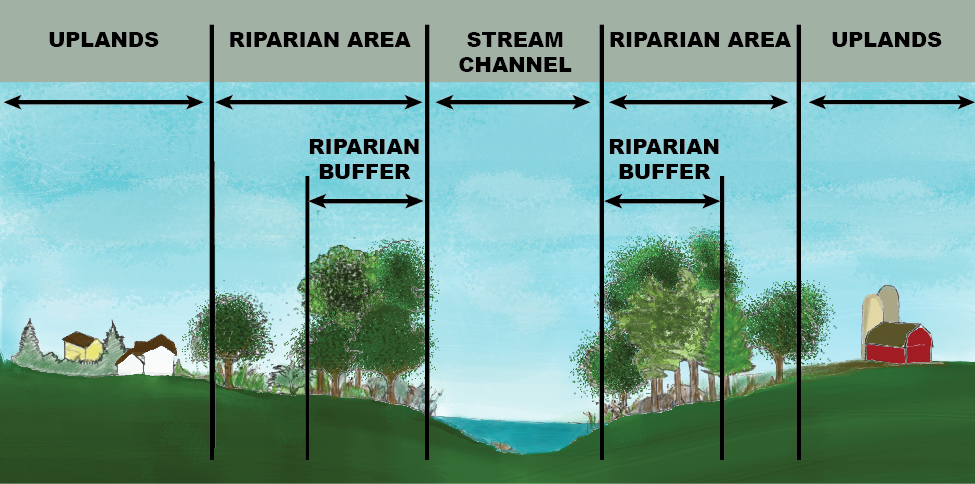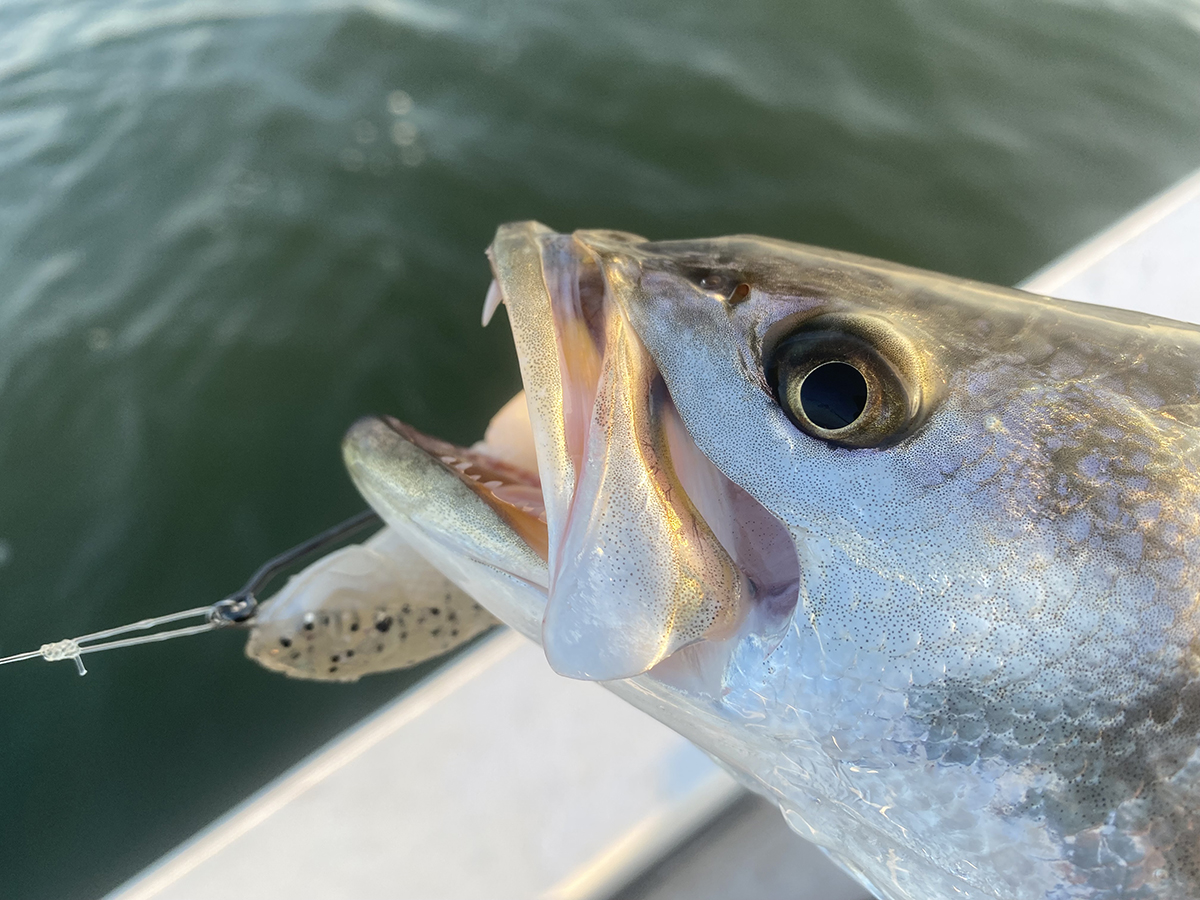Editor’s note: To stimulate discussion and debate, Coastal Review Online welcomes differing viewpoints on topical coastal issues. See our guidelines for submitting guest columns. The opinions expressed here are not those of Coastal Review Online or the N.C. Coastal Federation.
When you picture the most idyllic location along a river or stream, it most likely includes a bank lined with trees and other vegetation. In coastal North Carolina the river bank may be bordered with marsh grass, cypress trees or shrubs of bay.
Supporter Spotlight
In the world of water-quality protection, they are called “riparian buffers.” According to Wikipedia, such a buffer is defined as “a vegetated area near a stream, usually forested, which helps shade and partially protect a stream from the impact of adjacent land uses. It plays a key role in increasing water quality in associated streams, rivers and lakes, thus providing environmental benefits.”

Riparian buffers are our most cost-effective tool to protect the quality of our drinking water, recreational and commercial fisheries, tourism and to protect shorelines from erosion. Buffers of native trees, shrubs, grass and flowers along waterways are the ideal way to slow runoff from rainstorms and filter out pollution. Streamside buffers are essential to keep our water clean and provide a home for a variety of plants and animals both in the water and on the land. These undisturbed areas of land along waterways also reduce downstream flooding and help to keep our stream banks from collapsing, protecting our homes and businesses. Conserving streamside buffers is socially valuable, economically viable and ecologically necessary.
But two bills working their way through the N.C. General Assembly will greatly reduce or eliminate buffer requirements that have been in place for almost 20 years and protected major coastal rivers.
With water quality declining across the state in the early 1990s, and specifically in the Neuse and Tar-Pamlico rivers, the state recognized the benefits of protecting riparian buffers and implemented a good and fair policy to protect these areas. The rules passed in the late 1990s limit the loss of these important buffers via allowable construction of roads or utility lines for example, by establishing a program to restore or replace buffers in other areas, or what is often called an off-set or mitigation program. Additionally, federal law requires that North Carolina address unhealthy rivers by adopting management tools and strategies to reduce pollution.
Since many of our coastal river systems suffer from nutrient pollution, the state opted for a flexible approach, requiring pollution control measures from municipal and industrial dischargers, agriculture and other sources, in addition to protection of riparian buffers.
Supporter Spotlight
If buffer protection is removed or reduced, these other sources will have to make up the difference, likely at much greater expense. Repealing or weakening buffer protection will not relieve the state of its obligation — nor our own moral obligation to our children — to restore the water quality of our unhealthy rivers; it will only shift that obligation to the towns, businesses and agricultural contributors of nutrients, whose permits and practices would be subject to more stringent permit requirements.

Riparian buffers are a low-cost, effective way to protect water quality. By weakening this simple tool, the legislature puts a greater burden of improving our water quality on the backs of towns, businesses and farmers who are already doing their part.
In my 12 years at the Pamlico-Tar Riverkeeper, I have yet to come across anyone who doesn’t say they support clean water and healthy rivers. Our state’s constitution specifically calls for protection of our natural resources when it says, “It shall be the policy of this State to conserve and protect its lands and waters for the benefit of all its citizenry, and to this end it shall be a proper function of the State of North Carolina and its political subdivisions to acquire and preserve park, recreational and scenic areas, to control and limit the pollution of our air and water, to control excessive noise, and in every other appropriate way to preserve as a part of the common heritage of this State its forests, wetlands, estuaries, beaches, historical sites, open lands and places of beauty.”
That’s why all of us who work to protect our natural resources are left scratching our heads. Why since 2011 have our elected leaders voted numerous times to weaken protections for clean water? The assault on clean water continues this year with these two bills that seek to add to exemptions for implementation of the buffer rules as well as other weakening provisions. Presumably these bills were filed to give developers and home builders a free pass on complying with buffer rules. However, if passed, this action will only result in a greater regulatory burden on towns, counties and our farmers who also have to comply with rules aimed at reducing nutrient pollution.
The danger in failing to protect water quality, specifically from nutrient pollution that buffers help prevent, is a well-established science. Just last year, Toledo, Ohio, as well as two North Carolina coastal counties’ drinking water supplies were threatened by dangerous algae blooms, a significant health threat. If we fail to protect water quality we also risk losing companies that choose to start, grow or relocate in North Carolina because of the high quality of life and business opportunities that clean water provides.
The legislature has shown its disregard for protecting our environment by reducing the Department of Environment and Natural Resources staff and budget and weakening or repealing important laws that protect North Carolina’s natural resources and public health. DENR administration has added to this problem by prioritizing “customer service” to polluting industries over North Carolina citizens.
The legislature and administrators certainly have the power to do that, but in the near term that means polluting and wrecking our state’s beautiful beaches, billion-dollar fishing industry and clean drinking water. In the long term, it will result in a heavier regulatory burden on everybody else, since, ultimately the rivers and estuaries have to be cleaned up.
As a mother of two beautiful, young daughters, I wish every day for a bright and hopeful future. I wish for them to live in a North Carolina that values clean water, healthy communities and healthy economies and one that respects public resources and values public input on how those resources are protected. If you agree, I ask you to engage with your elected state representative and senator and tell them why clean water is important for you.







